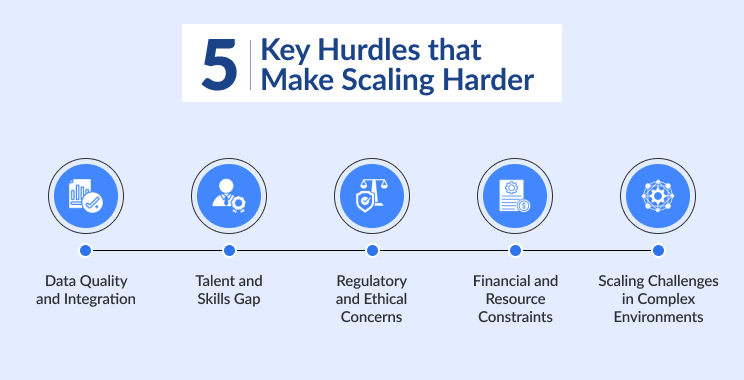The term “black-box” means that AI algorithms are very complex and not easy to understand. Many AI systems use deep learning or other tricky math models. Even the people who make the AI can’t always explain how it works. This lack of clarity causes problems in healthcare because patients and doctors often don’t know how AI decides on diagnoses or treatments.
This secrecy causes doubt. Patients might feel unsure or suspicious when AI is involved in their care, especially if they don’t understand the decisions. If a doctor can’t clearly explain an AI’s suggestion, it can hurt the trust between doctor and patient. Trust is very important because it affects how happy patients are, if they follow treatments, and their health results.
Studies show that people trust AI less when they think it works in a secret or confusing way. Without clear reasons, patients may feel that machines are making important choices without enough human care. This makes care feel less personal and doesn’t fit modern standards where patients are at the center.
The Importance of Trust and Empathy in the Doctor-Patient Relationship
Healthcare is not just about giving the right diagnosis or treatment. It’s also about the bond between the patient and the doctor. Feelings like trust and care are very important for good healthcare. When AI tools are used without explanation, this bond may weaken.
Research shows that when doctors show they care, patients are more likely to follow their treatments and be satisfied. Machines can’t really show care like people do. Using AI too much might mean doctors spend less time talking with patients. This can make patients feel less cared for.
Keeping a human connection is very important even as AI is used more. AI should help doctors by doing routine tasks so the doctors can spend more time with patients. It should not replace the caring conversations that build trust. Healthcare places must balance new technology with human values.
Addressing Bias and Healthcare Disparities in AI Systems
Another big issue with AI’s black-box nature is bias. Many AI systems learn from data that doesn’t represent everyone in the U.S. well. These biases can make health differences worse, especially for groups that don’t get as much attention, like racial minorities, older adults, or people living far away.
For example, if an AI system is trained mostly using information from middle-aged white men, it might not work as well for women of color or older patients. This can cause wrong diagnoses or bad treatment advice. Because the AI is a “black box,” patients from these groups may get worse care and trust AI even less.
Researchers like Abiodun Adegbesan and others have pointed out how biased data can lead to worse communication and health results for some groups. This means healthcare leaders need to be clear about how AI makes decisions and about the data it uses.
Enhancing Transparency: Strategies for Medical Practice Administrators and IT Managers
-
Selection of Explainable AI Models
Some AI systems are known as “explainable AI” or XAI. These systems can show clearly how they make decisions. While they might not always be as strong as black-box models, explainable AI helps doctors understand recommendations and explain them to patients. Choosing these kinds of AI tools is a smart move, especially in patient care. -
Integrating AI with Clinician Oversight
AI should help doctors make decisions, not make the choices on its own. Doctors must review AI’s suggestions carefully and talk openly with patients about them. This way, patients can trust their doctors’ judgment, while still getting AI’s help. -
Clear Communication with Patients
Healthcare leaders should encourage doctors to explain what AI does and how it helps in care. Patients like simple language that shows AI supports doctors rather than replacing them. Giving patients easy-to-understand materials about AI’s strengths, limits, and safety can lower fear and build trust. -
Regular Audits of AI Performance and Bias
IT teams and leaders must check AI systems often for accuracy and fairness. This means testing AI with different groups of patients and fixing biases if found. Sharing reports about AI performance with healthcare workers, and sometimes patients, helps keep systems honest. -
Collaboration with Trusted AI Vendors
Working with AI companies that focus on fairness, honesty, and ethics is important. Vendors should give clear details about their AI models and the data used. For example, Simbo AI offers AI tools for front-office phone work that improve communication while respecting patients and healthcare staff. Choosing vendors who understand healthcare privacy and rules helps lower the risks of black-box AI.
Voice AI Agent: Your Perfect Phone Operator
SimboConnect AI Phone Agent routes calls flawlessly — staff become patient care stars.
Administrative Wave: AI in Healthcare Workflow Automation
AI is not only used for medical decisions but also to improve how healthcare offices work. For managers and IT staff, AI can reduce manual work while keeping good patient contact.
One growing area is front-office phone automation and answering services. Some companies like Simbo AI have AI virtual receptionists that handle patient calls, schedule appointments, and answer questions using natural language processing. These systems can sort calls, give quick answers, and let staff focus on harder patient needs.
Automating simple front-office tasks helps healthcare by:
- Reducing Wait Times: AI answering services can handle many calls quickly, so patients don’t wait long and get frustrated.
- Improving Patient Access: Automated scheduling and reminders help patients get appointments on time, which improves satisfaction and following treatments.
- Enabling Staff Productivity: By taking care of repeated tasks like confirming appointments or answering simple questions, staff can focus more on important patient care and admin work.
- Ensuring Consistency in Communication: AI keeps messages clear and standard, reducing mistakes or confusion in busy healthcare offices.
- Integrating with Electronic Health Records (EHR): Advanced AI can access or update patient info during calls, helping clinical teams work smoothly.
But it is important to automate wisely to avoid making patient communication less personal. AI should help, not replace human contact. Most patients prefer a mix where AI handles easy questions but human staff deal with complex or sensitive talks.
AI Call Assistant Manages On-Call Schedules
SimboConnect replaces spreadsheets with drag-and-drop calendars and AI alerts.
The U.S. Healthcare Context: Balancing Innovation and Patient-Centered Care
Healthcare in the U.S. faces special challenges like different locations, insurance rules, and varied patient understanding. Leaders must adjust AI use according to these facts.
Transparency in AI is very important because of rules and patient expectations. Groups like the FDA and the Office of the National Coordinator for Health Information Technology (ONC) push for safe and fair AI use. Laws like HIPAA add complexity but also stress the need for clear and trusted systems.
Medical practices that use AI with clear communication, regular bias checks, and respect for patient feelings will better match patient-centered care goals. Transparency is not only a tech issue but also part of ethical care when using AI.
HIPAA-Compliant Voice AI Agents
SimboConnect AI Phone Agent encrypts every call end-to-end – zero compliance worries.
Summary
The black-box feature of AI systems makes it hard for patients to trust healthcare decisions. This missing clarity can hurt the care quality and the important connection between doctors and patients in the U.S. Healthcare managers and IT staff must choose explainable AI, keep doctors involved, explain AI to patients, check for bias regularly, and work with honest vendors.
At the same time, AI tools that automate front-office tasks like phone answering and scheduling—such as those by Simbo AI—can improve how healthcare offices run and how patients get service, if done carefully to keep personal care.
By balancing technology with open communication and honesty, healthcare in the U.S. can use AI to improve care without losing patient trust and human kindness.
Frequently Asked Questions
What is the role of AI in healthcare?
AI is transforming patient care by enhancing diagnostics, improving efficiency, and aiding clinical decision-making, which can lead to more effective patient management.
What concerns arise from AI integration in healthcare?
There are significant concerns about the potential erosion of the doctor-patient relationship, as AI may depersonalize care and overshadow empathy and trust.
How does AI’s ‘black-box’ nature affect patient trust?
The lack of transparency in AI decision-making processes can undermine patient trust, as patients might feel uncertain about how their care decisions are made.
Can AI widen health disparities?
AI systems trained on biased datasets may inadvertently widen health disparities, particularly affecting underrepresented populations in healthcare.
What routine tasks can AI streamline for healthcare providers?
AI can automate repetitive tasks such as data entry and scheduling, allowing healthcare providers to focus more on direct patient care.
What is the importance of empathy in healthcare?
Empathy is crucial in healthcare as it fosters trust, enhances the doctor-patient relationship, and influences patient satisfaction and adherence to treatment.
How can AI enhance rather than replace human connection?
Future developments should focus on creating AI systems that support clinicians in delivering compassionate care, rather than replacing the human elements of healthcare.
What is a balanced approach to AI in healthcare?
A balanced approach involves leveraging AI’s capabilities while ensuring that the human aspects of care, like empathy and communication, are preserved.
Why is the doctor-patient relationship vital?
The doctor-patient relationship is foundational for effective medical practice, as it influences patient outcomes, satisfaction, and trust in the healthcare system.
What should future research in AI healthcare focus on?
Future research should emphasize creating transparent, fair, and empathetic AI systems that enhance the compassionate aspects of healthcare delivery.
The post The Impact of AI’s ‘Black-Box’ Nature on Patient Trust and Strategies for Enhancing Transparency in Healthcare first appeared on Simbo AI – Blogs.







